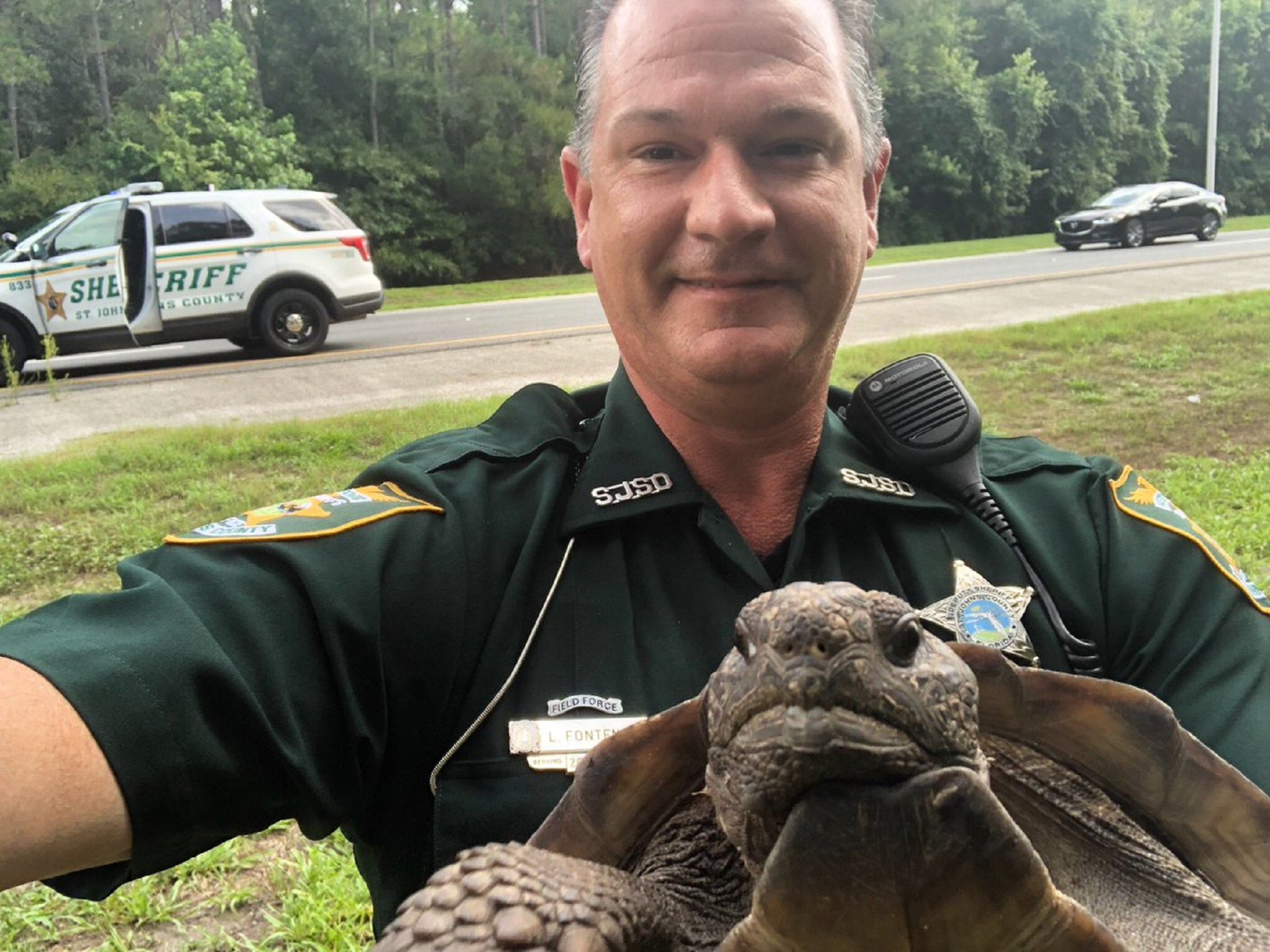Tortoise detained by police for blocking road
Officers let creature go free in nearby woodland after 'heartfelt conversation regarding his risky behaviour'

A tortoise was detained by police for blocking a road and refusing to move when asked.
The slow-moving Florida native was making its way along Nocatee Parkway, north of St Augustine, when St John’s County Sheriff’s Deputy L Fontenot spotted it during a routine patrol.
Deputy Fontenot attempted to get the animal, identified as “Gopherus Genus”, whose exact age is unknown, to clear the road but he refused and carried on walking.
The officer quickly detained the suspect and after a “heartfelt conversation regarding his risky behaviour” he was “released on his own recognisance” to a nearby woodland.
Posting a selfie with the tortoise on Facebook, Deputy Fontenot said: “Gopherus was cooperative during the remainder of my encounter with him, so I chose to use discretion and let him go with a warning. In fact, our interaction was so positive, we posed for a selfie together.”
Gopher tortoises are listed as threatened in Florida.
They can live up to 60 years in the wild, while captive tortoises can live up to more than 90.
They are considered a keystone species because the deep burrows they dig for shelter are shared with 350 other species.
According to the Florida Fish and Wildlife Conservation Commission, both the tortoise and its burrows are protected under state law.
Join our commenting forum
Join thought-provoking conversations, follow other Independent readers and see their replies
Comments
Bookmark popover
Removed from bookmarks